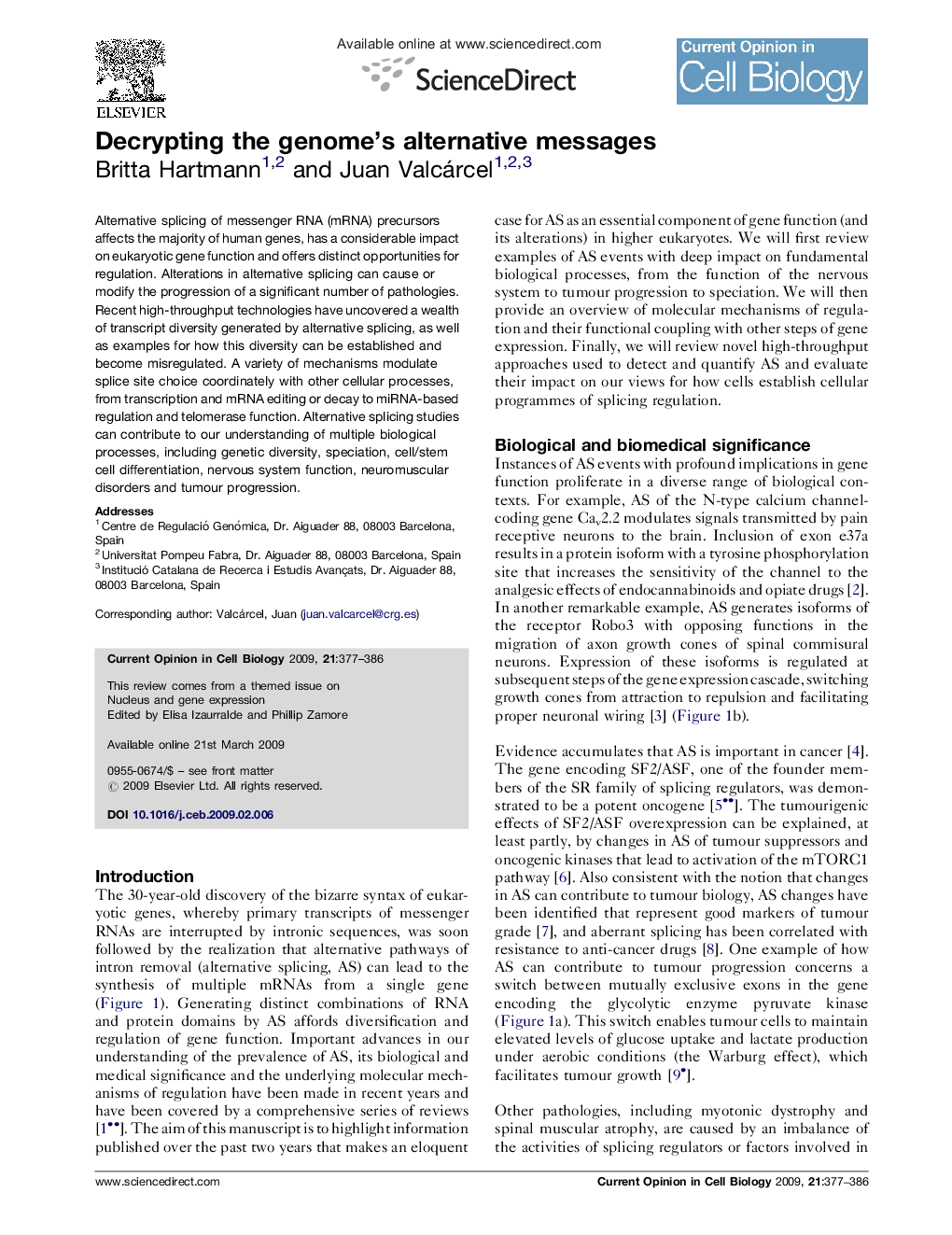| Article ID | Journal | Published Year | Pages | File Type |
|---|---|---|---|---|
| 2170032 | Current Opinion in Cell Biology | 2009 | 10 Pages |
Alternative splicing of messenger RNA (mRNA) precursors affects the majority of human genes, has a considerable impact on eukaryotic gene function and offers distinct opportunities for regulation. Alterations in alternative splicing can cause or modify the progression of a significant number of pathologies. Recent high-throughput technologies have uncovered a wealth of transcript diversity generated by alternative splicing, as well as examples for how this diversity can be established and become misregulated. A variety of mechanisms modulate splice site choice coordinately with other cellular processes, from transcription and mRNA editing or decay to miRNA-based regulation and telomerase function. Alternative splicing studies can contribute to our understanding of multiple biological processes, including genetic diversity, speciation, cell/stem cell differentiation, nervous system function, neuromuscular disorders and tumour progression.
